How the west was won: Film Row transformation triggering further downtown OKC development
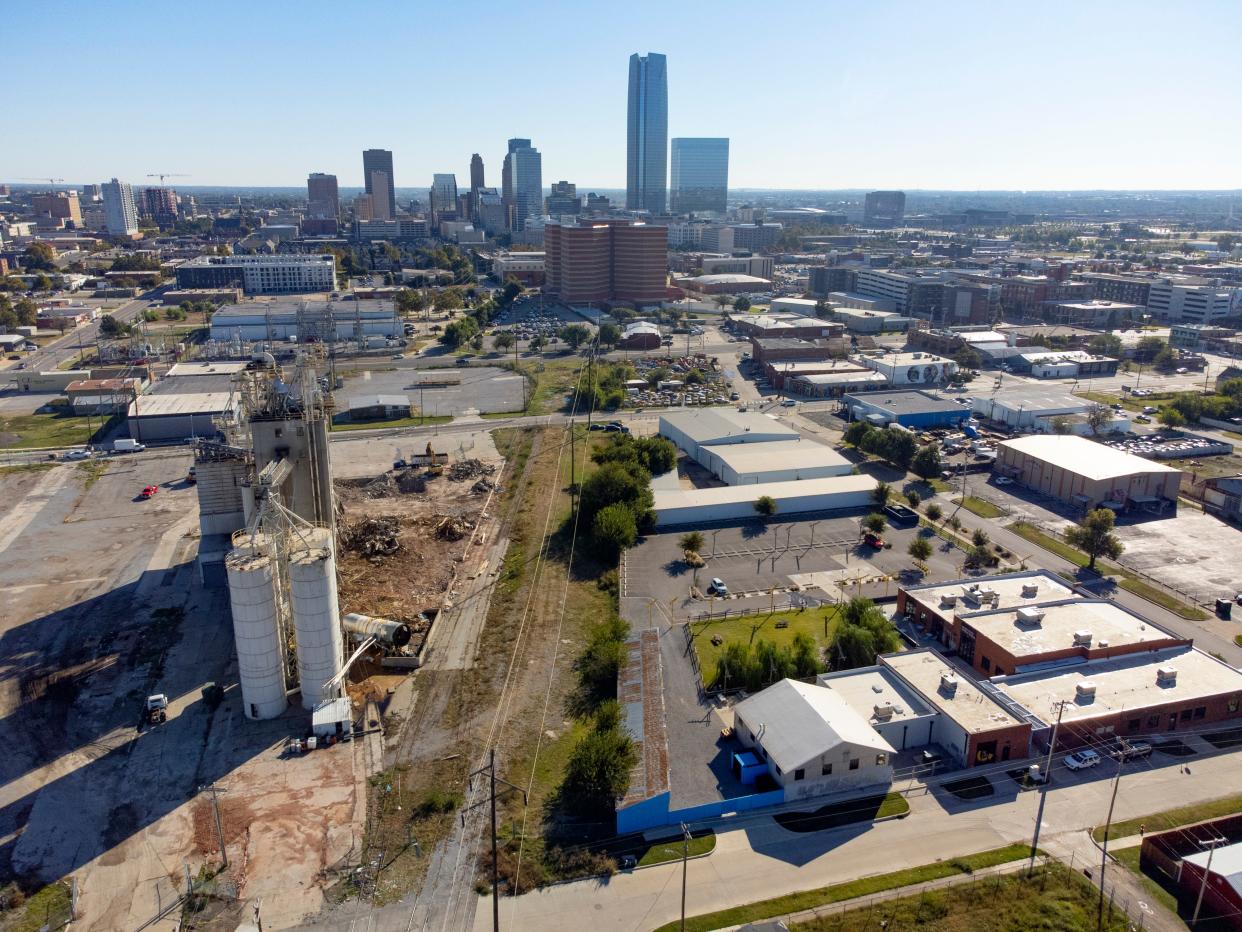
In one of the last derelict buildings left along downtown Oklahoma City's Sheridan Avenue, Hamid Pezeshkian is overseeing an influx of new retail. Twenty years ago, development on the stretch known as Film Row was just a dream for those who sought to revive the collection of art deco buildings.
The 14,000-square-foot warehouse, built over a century ago, stood empty for more than 30 years before it was purchased by Pezeshkian in 2022.
Renovated and reopened as Sailor and Dock, the warehouse recently reopened as a mix of retail, food and beverage that includes a bookstore, pasta shop, used clothing store, art gallery, crystal shop, coffee shop, bakery, bar and a farm-to-table cafe and mini-grocery.
New construction in the suburbs might have been easier, Pezeshkian concedes, but the former homebuilder is instead committing himself to projects that fit into his vision of sustainability, wellness and creativity.
“I found this building, and I thought it would be a perfect place to pursue my passion of restoring an old historical building,” Pezeshkian said. “I don’t have to take natural land and destroy it and the ecosystem that is there to build something new.”
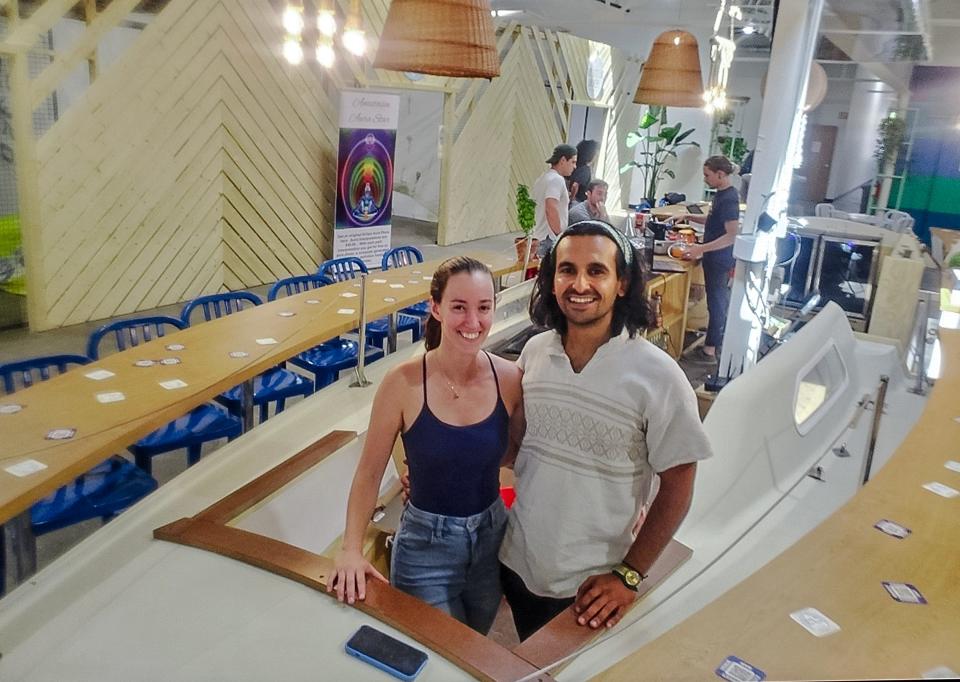
A similar vision inspired Chip Fudge to gamble on Film Row 20 years ago when most of the buildings on Sheridan Avenue on the west fringe of downtown were empty and boarded up. Now, Fudge and others are looking to extend the revival of the west fringe of downtown where a forgotten industrial area is emerging as yet another collection of dining and entertainment.
“I can’t afford property in my own district now,” Fudge joked. “It's gotten too expensive.”
Fudge, once again, is pioneering redevelopment in the industrial area bound by Oklahoma City Boulevard, Western Avenue, Klein Avenue and Linwood Boulevard. Fudge started his investment in the area with the purchase of a large warehouse at 1900 Linwood that was home to Architectural Antiques. He kept the business, renamed it Dead People's Stuff, and then renovated adjoining buildings into a barbeque restaurant, brewery and cat cafe.
More: OKC's Dead People's Stuff antique store selling pieces from 'Killers of the Flower Moon' set
Other developers have followed Fudge’s lead, with the Pivot Project redeveloping an industrial block at NW 2 and Klein into a live music hall, restaurant and brewery. The new Mexican Consulate opened along Sheridan Avenue and KOSU recently announced it is moving to an old warehouse on Klein just south of Main Street.
“It’s a similar deal,” Fudge said. “People saw what happened on Film Row, and then I put some money in at Dead People’s Stuff. There are a dozen of us trying to figure out what the next hot spot will be, and I think in 10 to 15 years this area will look like Film Row.”
Revitalization in Oklahoma City spreading west
Old-timers might recall the days when the area around the 700 block of W Sheridan Avenue, known as Grand Avenue through the 1960s, was home to dozens of Hollywood studio outposts and theater supply companies.
From the 1970s through the time when Fudge started buying properties the stretch was better known as “skid row” — a place most residents avoided.
Fudge joined up with designer David Wanzer (later a co-founder of the Pivot Project) in 2004 in drafting a redevelopment plan for the area, that ultimately would include an ambitious streetscape that preceded the Project 180 makeover of all downtown streets.
“The area was incredibly rough,” Fudge said. “Almost all the buildings were boarded up. The woman who owned Theater Supply (the last remnant of the old film operations) had closed a year before I started buying properties.”
As Fudge renovated one building after another on Sheridan Avenue, the family of the late auto dealer Fred Jones looked at how to redevelop their historic 1916 Ford Model T assembly plant and surrounding properties.
Fred Hall, Jones’ grandson, teamed up Grammy Award-winning singer Graham Colton and restaurateur Brian Bogart to convert two warehouses once owned by John A. Brown’s department store into a restaurant, event center and live music venue.
Since opening in 2017, Jones Assembly has hosted more than 100 concerts with performers that include Indigo Girls, Willie Nelson, American Aquarium, Grace Potter and Dwight Yoakam.
“We have watched the neighborhood grow,” Colton said. “There are so many people who have started businesses here, and moved businesses here, that we now have a vibrant community. The next couple of years are going to be really exciting. There are a lot of ideas being tossed around, but it’s also important we do it the right way.”
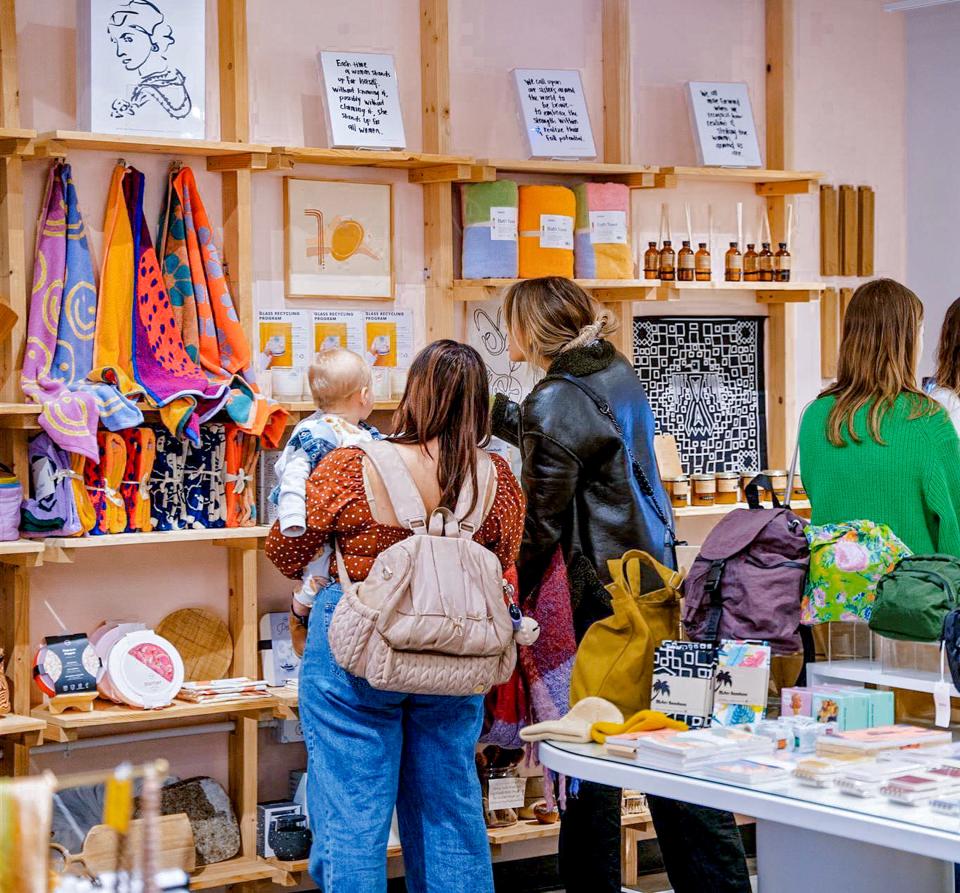
Retail, apartments, offices and entertainment development to continue
Only one building along Film Row, at 830 W Sheridan, remains empty and boarded up, and it is owned by the Hall family.
In addition to the hotel and Jones Assembly, the Hall family teamed up with developers Andy Burnett and Mark Beffort to create West Village, a mix of apartments, retail and restaurants. At the heart of the district is the Fordson Hotel in the historic assembly plant.
“We agreed the only way to pull this off was to go big,” Burnett said. “There are now a bunch of great restaurants, retail, a dessert bar, hair salons and fun things to do at night. It took a bunch of people willing to invest in their properties. It took a lot of people like Chip Fudge and the Hall family dreaming big.”
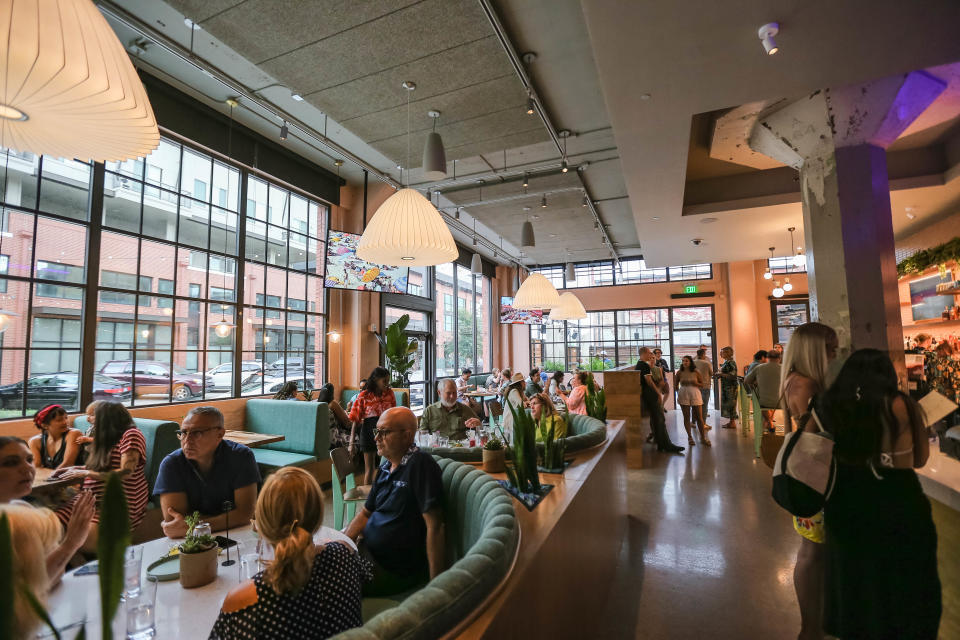
No master plan is in place for what happens next as redevelopment spreads west of Classen Boulevard, south of Reno Avenue and north of Main Street.
The Pivot Project, which redeveloped the Main Street Arcade and the Sunshine Laundry, was set to start building an apartment complex on the last large swath of land at NW 4 and Shartel. But the project is on hold due to rising construction and interest costs.
The group is moving ahead, however, with redevelopment of an industrial block bounded by SW 2, SW 3, Shartel Avenue and Classen Boulevard into a mix of community-style offices, restaurants and apartments.
Jonathan Dodson, CEO of the Pivot Project, is meanwhile eyeing changes taking place next to the Beer City development where a five-acre property that was home to a Purina plant is being cleared by new owner R.D. Smith.
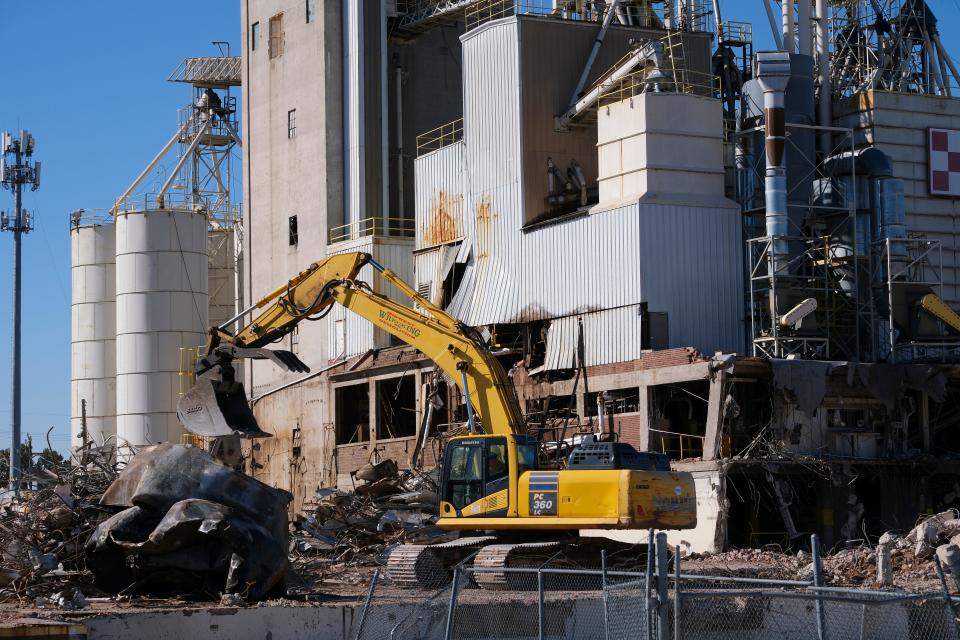
Smith declined to disclose his plans for the property. The location, extending to Western Avenue, presents an opportunity to connect the scattershot development west of Classen Boulevard with Film Row as does the possibility of even more land becoming available should the Oklahoma County jail be relocated.
“We believe the west side of downtown has the most potential for transformative growth the next five years,” Dodson said. “With the jail moving and the Purina plant coming down, there is going to be a lot of opportunity for development and placemaking.”
Steve Lackmeyer started at The Oklahoman in 1990. He is an award-winning reporter, columnist and author who covers downtown Oklahoma City, urban development and economics for The Oklahoman. Contact him at slackmeyer@oklahoman.com. Please support his work and that of other Oklahoman journalists by purchasing a subscription today at subscribe.oklahoman.com.
This article originally appeared on Oklahoman: This downtown OKC neighborhood is revitalizing forgotten buildings

